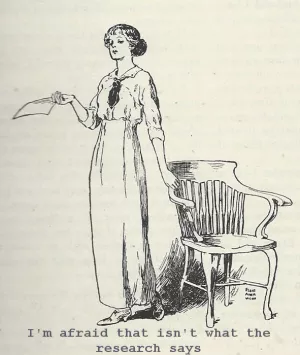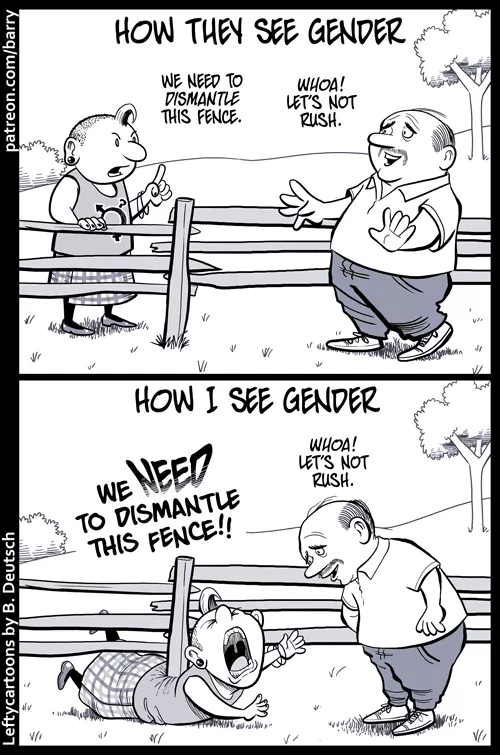
This is another guest post by Carla, which originally appeared on her blog Writing in Water, and appears here with her kind permission.
For more than 20 years, the idea of a crisis of sexual assault against women has been under attack; this attack has acquired new vigour in the wake of the White House’s focus on sexual assault on college campuses. When in June the Washington Post released a survey, in conjunction with the Kaiser Family Foundation, appearing to confirm the claim that one in 5 women will be sexually assaulted while at college, it was inevitable that critical articles would soon start appearing in the media. The National Review was one of the first to respond with a piece titled ‘The Post’s New Poll on Campus “Sexual Assault” is Bogus.’ While there are other surveys with larger sample sizes and more rigorous methodology that offer better evidence for the alarming levels of sexual victimisation faced by college women, the National Review article, which I will discuss here, nonetheless illustrates why we should be wary of laypeople in the media purporting to debunk sexual violence research.
Claim 1. This survey’s results resemble those of the unreliable 2007 Campus Sexual Assault Survey
The National Review begins by noting that the results of the Washington Post Kaiser survey are similar to the 2007 Campus Sexual Assault Survey (CSA), whose results, it is claimed, were “suspect from the start” because that survey used “an exceedingly generous definition of sexual assault and its response rate was relatively low.” This is misleading. To start with, the Washington PostKaiser survey is consistent with a body of research over several decades, not a single survey.
Second, it is completely untrue that CSA used “an exceedingly generous definition of sexual assault.” CSA defined sexual assault as 1) oral, anal and vaginal sex and 2) “forced touching of a sexual nature (forced kissing, touching of private parts, grabbing, fondling, rubbing up against you in a sexual way, even if it is over your clothes)” that took place in the context of physical force/threats of physical force or incapacitation. Some critics have attempted to claim, unconvincingly, that the questions about incapacitated sexual assault in CSA are worded in such a way that they capture consensual sexual activity; I discuss this here. A smaller number of critics, including the National Review, have also attempted to argue that “forced kissing” is not really sexual assault. As Van Jones’s swift takedown of the editor of the National Review when he attempted to make this claim on ABC’s The Week shows, we need only ask the (male) proponents of this idea how they feel about being forcibly kissed by another man to underscore how thin this objection really is.
The second part of the National Review’scriticism of CSA, that “its response rate was relatively low” (around 42% of invited participants responded) is also unconvincing. There is little evidence that the survey’s results were affected by response bias. The authors of the survey actually went to some trouble to gauge if it was a problem—for example, they compared respondents who responded early with those who had to be prompted several times—and found no evidence of any. (Incidentally, the problem of bias in sexual violence surveys is more likely to work in the opposite way from which critics imagine. That is, reluctance to disclose these sensitive and traumatic events means they are more likely to undercount episodes of sexual violence.)
Claim 2. The survey’s results are much lower than those of the National Crime Victimization Survey
The National Review article next brings up that favourite of rape survey critics, the National Crime Victimization Survey (NCVS). Describing it as a “more comprehensive and rigorous” survey than CSA, the National Review notes that it found a sexual violence rate
of 7.6 per 1000. In reality, NCVS is widely recognised as a poor measure of sexual violence prevalence and its results are completely out of step with the collective results of 30 years of sexual violence surveys. These problems are recognised by the Bureau of Justice Statistics, which is currently contracting with researchers to improve the sexual violence portion of the survey.
NCVS primarily owes its unreliability to the wording of the question about sexual assault. In this question, respondents are first asked if anyone has “attacked or threatened you in any of these ways,” before being read a variety of violent crimes; the one asking about sexual violence is worded “Any rape, attempted rape or other type of sexual attack.” This question relies upon victims of sexual assault recognising that they have been raped and/or viewing it as an “attack,” and the context of the question makes it clear that the interviewer is asking about crimes that are on a par with being violently attacked with a weapon.
There are many reasons why victims of sexual assaults that fall within the purview of this question would not realise that they do, however. The dominant conception of ‘real’ sexual violence is that it is perpetrated by strangers with weapons who attack chaste women who actively resist. Sexual violence, including rape, that doesn’t fit this script (in other words, the vast majority), such as that perpetrated by intimate partners or in the context of heavy drinking, is routinely trivialised or not viewed criminal, and its victims are blamed or disbelieved. Unsurprisingly, therefore, it is extremely common for victims of sexual assault to blame themselves and downplay what happened (note that this does not mean that they were not traumatic events). We also know that the majority of victims of rape do not use the word “rape” to describe their experience. Moreover, the word “attack” in the NCVS sexual violence question implicitly excludes sexual violence that takes place in the context of incapacitation, or where the victim didn’t actively resist. It is, therefore, wholly unsurprising that many victims of sexual assault would not consider their experiences to align with the kinds of assaults that NCVS is asking about, even if they do.
Claim 3. The survey includes “unwanted sexual contact” in its definition of sexual assault, which is so broad that it includes legal acts and even innocent misunderstandings
The National Review‘s main criticism revolves around the fact that the survey questions asking about sexual assault include the phrase “unwanted sexual contact.” It claims that this is a much broader term than “sexual assault” and “can encompass behaviors that are not only not criminal, but may not … even constitute unlawful sexual harrassment.” In addition, the article claims, ‘“unwanted” is not the same as “without consent”’ and can “encompass a variety of circumstances, up to and including entirely legal misunderstandings and legal (though immoral) emotional manipulation.”
First, however, there is no formal definition of “sexual assault.” It is simply a term used by researchers to include a set of behaviours, usually broader than just rape; exactly what it includes depends on the researcher. Some states use the term in legislation, but its definition varies. Second, the question respondents were actually read lists possible types of “unwanted sexual contact” as 1) vaginal, oral or anal sex and 2) “Forced touching of a sexual nature,” with interviewers instructed to “read if needed” the following clarification: “forced kissing, touching of private parts, grabbing, fondling, rubbing up against you in a sexual way, even if it is over your clothes” (as can be seen, this question was modelled on CSA). Respondents were then asked if they had experienced any of these kinds of unwanted sexual contact in the context of 1) physical force or threats of physical force and 2) incapacitation. Sexual acts that take place in the context of physical force, threats of physical force and/or incapacitation do not involve ambiguity about consent.
Claim 4. The survey’s definition of sexual assault doesn’t “come close” to legal definitions of sex crimes
The National Review goes on to claim that “These definitions don’t come close to matching the legal definition of the various sex crimes prohibited by various state laws.” For example, it says, “the phrase ‘forced touching of a sexual nature’ isn’t precise enough to encompass ‘sexual battery’ under Tennessee law.” In answer to this, it should first be pointed out that legal definitions are not necessarily a good way of defining sexual assault. At one time, not always so very long ago, for example, spousal rape, rape of men, incapacitated rape and rapes where the victim did not actively resist were not criminalised. As this paper points out, legislation in some jurisdictions still reflects these outdated ideas. We surely do not believe that, say, spousal rape only exists if it is written into law. But even putting this aside, it’s hard to understand the National Review‘s quibble.
The National Review gives a link to Tennessee definitions of sexual assault and invites readers to compare the definition of “sexual battery” with the Washington PostKaiser survey’s definition of “forced touching of a sexual nature.” The Tennessee definition of “sexual battery” is as follows:
(a) Sexual battery is unlawful sexual contact with a victim by the defendant or the defendant by a victim accompanied by any of the following circumstances:
(1) Force or coercion is used to accomplish the act;
(2) The sexual contact is accomplished without the consent of the victim and the defendant knows or has reason to know at the time of the contact that the victim did not consent;
(3) The defendant knows or has reason to know that the victim is mentally defective, mentally incapacitated or physically helpless; or
(4)The sexual contact is accomplished by fraud.
(b) As used in this section, “coercion” means the threat of kidnapping, extortion, force or violence to be performed immediately or in the future.
Tennessee legislation defines “sexual contact” as:
the intentional touching of the victim’s, the defendant’s, or any other person’s intimate parts, or the intentional touching of the clothing covering the immediate area of the victim’s, the defendant’s, or any other person’s intimate parts, if that intentional touching can be reasonably construed as being for the purpose of sexual arousal or gratification.
“Intimate parts” are defined as “the primary genital area, groin, inner thigh, buttock or breast of a human being.”
This definition of sexual battery, which includes “sexual contact accomplished by fraud” and non- violent threats, actually includes acts that are not included in the Washington Post-Kaiser survey’s definition of forced sexual touching. Moreover, it’s mystifying why sexual touching that takes place in the context of physical force, threats of physical force or incapacitation should be considered inconsistent with this legislation. The National Review does not elaborate. And while I am certain creative minds could come up with ways in which the Washington PostKaiser definition of forced sexual touching could be misconstrued, this does not translate to it being misinterpreted in practice. We are, after all, talking about ordinary people responding to a survey, not lawyers hunting out technicalities for a court case.
One final point: although the Washington Post-Kaiser survey does not ask about experiences of rape separately from experiences of forced touching, other surveys have found that victims disclosing only nonrape forms of sexual assault make up a relatively small proportion of the results. CSA, for example, upon which the Washington PostKaiser survey is modelled, found that only 28% of victims of physically forced and 23% of victims of incapacitated sexual assault disclosed only forced sexual touching. Since, as I mentioned earlier, it is well-known that women tend to downplay experiences of sexual assault, this is unsurprising. Respondents to surveys of sexual violence are probably less likely to disclose less serious assaults, meaning these surveys probably undercount episodes of non-rape sexual assault.
A final word
Because most people are not familiar with sexual violence research, and probably lack the inclination to even read the survey instrument, the claims in this article may seem more plausible than they are. Certainly, if the comments section is anything to go by (I did not see a single person questioning the criticism of the survey), this piece has convinced some readers. But calling the Washington PostKaiser survey “bogus” is an inappropriate way to characterise the work of the researchers who designed and carried it out—nor does it change the fact that, yes, it is very likely that one in five American women will be the victims of sexual assault while at college.
References


















